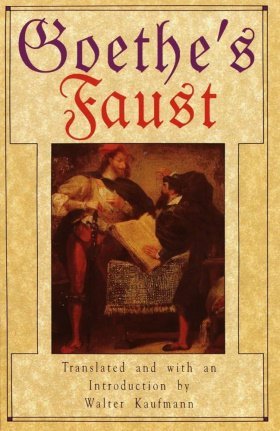And seldom scents a thing in vain,
If it be holy or profane.
Your jewels, she was not long in guessing,
Were not like to bring a blessing.
“My child,” quoth she, “ill-gotten gear
Ensnares the soul, consumes the blood;
We’ll give it to Mary-mother dear,
And she will feed us with heavenly food!”
Margaret looked blank—“’tis hard,” thought she,
“To put a gift-horse away from me;
And surely godless was he never
Who lodged it here, a gracious giver.”
The mother then brought in the priest;
He quickly understood the jest,
And his eyes watered at the sight.
“Good dame,” quoth he, “you have done right!
He conquers all the world who wins
A victory o’er his darling sins.
The Church is a most sharp-set lady,
And her stomach holds good store,
Has swallowed lands on lands already,
And, still unglutted, craves for more;
The Church alone, my ladies dear,
Can digest ill-gotten gear.”
Faust.
That is a general fashion—Jew,
And King, and Kaiser have it too.
Mephistopheles.
Then ring and ear-ring, and necklace, and casket,
Like a bundle of toad-stools away he bore;
Thanked her no less, and thanked her no more,
Than had it been so many nuts in a basket;
On heavenly treasures then held an oration,
Much, of course, to their edification.
Faust.
And Margaret?
Mephistopheles.
Sits now in restless mood,
Knows neither what she would, nor what she should;
Broods o’er the trinkets night and day,

























